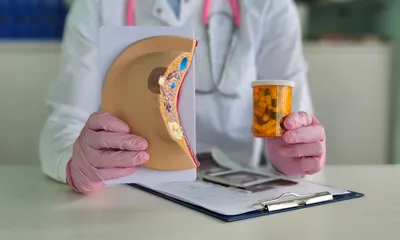Prescription Medicines to Reduce Cholesterol

Cholesterol is responsible for making hormones, vitamin D, and digestive aids and having a healthy balance is important. Having too much cholesterol causes it to mix with substances in blood stream to form plaque. Plaque forms a waxy, platelet that can stick to the walls of arteries and create blood blockage. Depending on the person’s condition, a change in lifestyle and diet can help reduce high cholesterol but for others, prescription medications are the only solution. Here is a breakdown of the types of cholesterol and a list of prescription medicines to help reduce cholesterol.
Types of Cholesterol:
Low-density Lipoprotein (LDL): This is known as the “bad” cholesterol because of its ability to sink and clump up together to form plaque.
High-density Lipoprotein (HDL): This is known as the “good” because it carries cholesterol from other parts of your body back to your liver.
Very Low-density Lipoprotein (VLDL): This is another form of “bad”, it carries triglycerides and builds up plaque.
Causes for High Cholesterol:
The following factors contribute to the causes of high cholesterol:
Weight: Being classified as obese means is when a person falls under a certain level in the body mass index which increases the cholesterol level.
Age: As people get older, cholesterol levels rise.
Heredity: High cholesterol in a person’s family history can be a contributing factor.
List of Prescription Medicines to Reduce Cholesterol:
The following prescription drugs have various side effects and strict directions for use. A licensed professional which prescribes these medications can safely monitor and advice which regiment will work best for the individual.
Caduet (Norvasc and Lipitor combination):
A combination of Lipitor (used to counter bad cholesterol) and Norvasc (counters high blood pressure).
Crestor (Rosuvastatin Calcium):
Crestor works well with a structured low cholesterol diet. It limits the amount of cholesterol and amount of fatty substances in the blood stream.
Used to lower cholesterol and triglyceride levels in the bloodstream. It is also a statin which is used to reduce cardiovascular disease.
Used in a similar fashion as Crestor and used along side of diet changes. It slows the production of cholesterol in the body. Helps with lowering bad cholesterol and other cardiovascular diseases.
Niaspan FCT (Extended Release):
Works by increasing HDL (good cholesterol) and lowers LDL/triglycerides (bad cholesterol).
Works alongside dietary changes and helps reduce cholesterol levels in the body.
Questran Lite (Choletyramine):
Used to lower low-density lipoprotein (LDL).
Helps by increasing HDL and lowers LDL. It also helps increase the natural breakdown of fats in the blood, which reduces the chance of plaque build-up.
Zetia works by reducing the absorption of fat and is used alongside dietary changes.
Limits the intake of cholesterol and fat in the body and bloodstream.
Where To Get Them:
Canpharm has all these prescription drugs and many more easily available online and delivered right to your door. Be sure to consult your doctor to see if these drugs are right for you. Once the prescription has been cleared, simply go online, submit your prescription and order.
It’s fast, easy, and you can save hundreds of dollars from the great low prices Canpharm offers.
IMPORTANT NOTE: The above information is intended to increase awareness of health information and does not suggest treatment or diagnosis. This information is not a substitute for individual medical attention and should not be construed to indicate that use of the drug is safe, appropriate, or effective for you. See your health care professional for medical advice and treatment.


